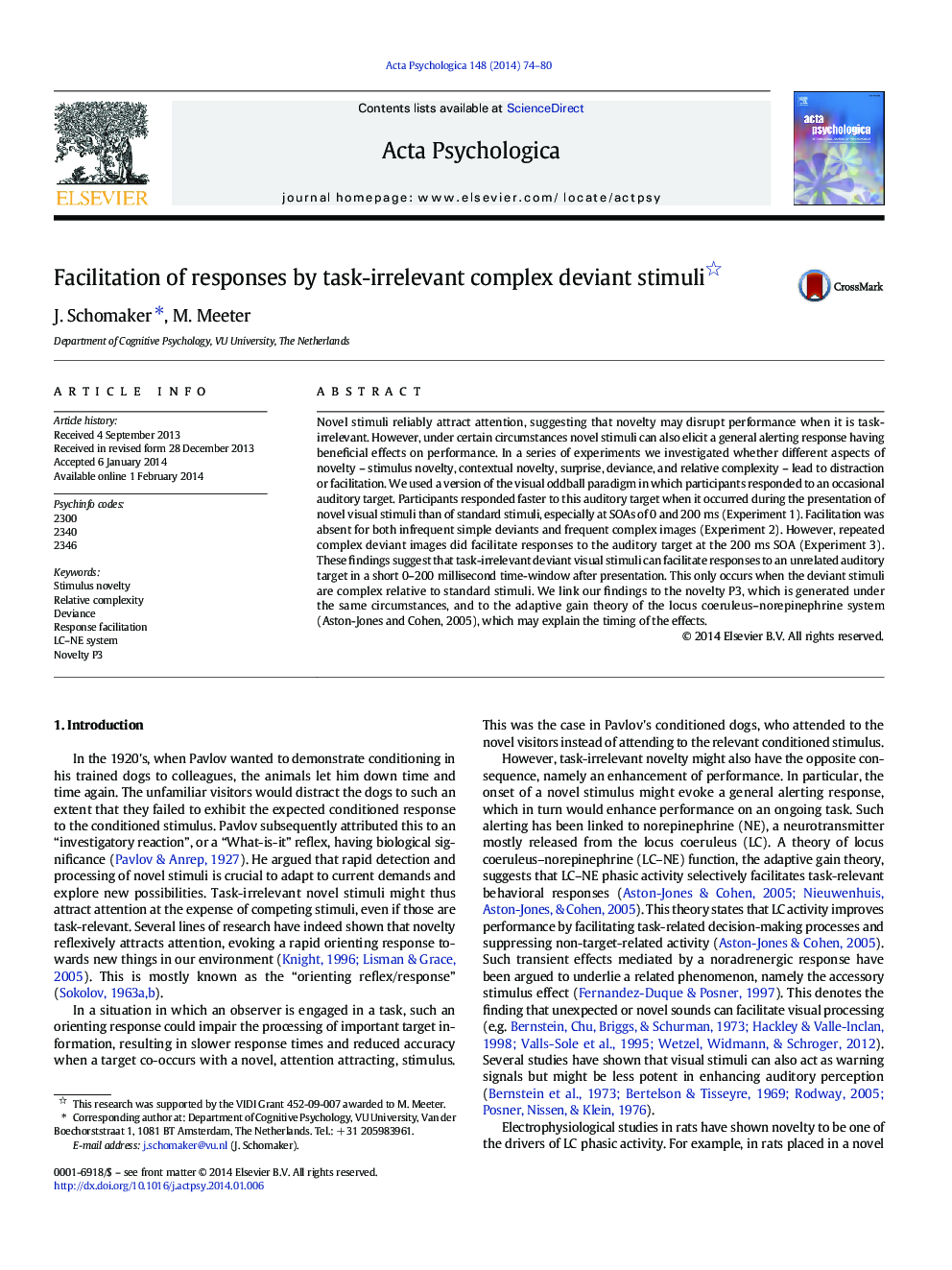| Article ID | Journal | Published Year | Pages | File Type |
|---|---|---|---|---|
| 7277770 | Acta Psychologica | 2014 | 7 Pages |
Abstract
Novel stimuli reliably attract attention, suggesting that novelty may disrupt performance when it is task-irrelevant. However, under certain circumstances novel stimuli can also elicit a general alerting response having beneficial effects on performance. In a series of experiments we investigated whether different aspects of novelty - stimulus novelty, contextual novelty, surprise, deviance, and relative complexity - lead to distraction or facilitation. We used a version of the visual oddball paradigm in which participants responded to an occasional auditory target. Participants responded faster to this auditory target when it occurred during the presentation of novel visual stimuli than of standard stimuli, especially at SOAs of 0 and 200Â ms (Experiment 1). Facilitation was absent for both infrequent simple deviants and frequent complex images (Experiment 2). However, repeated complex deviant images did facilitate responses to the auditory target at the 200Â ms SOA (Experiment 3). These findings suggest that task-irrelevant deviant visual stimuli can facilitate responses to an unrelated auditory target in a short 0-200Â millisecond time-window after presentation. This only occurs when the deviant stimuli are complex relative to standard stimuli. We link our findings to the novelty P3, which is generated under the same circumstances, and to the adaptive gain theory of the locus coeruleus-norepinephrine system (Aston-Jones and Cohen, 2005), which may explain the timing of the effects.
Related Topics
Life Sciences
Neuroscience
Cognitive Neuroscience
Authors
J. Schomaker, M. Meeter,
